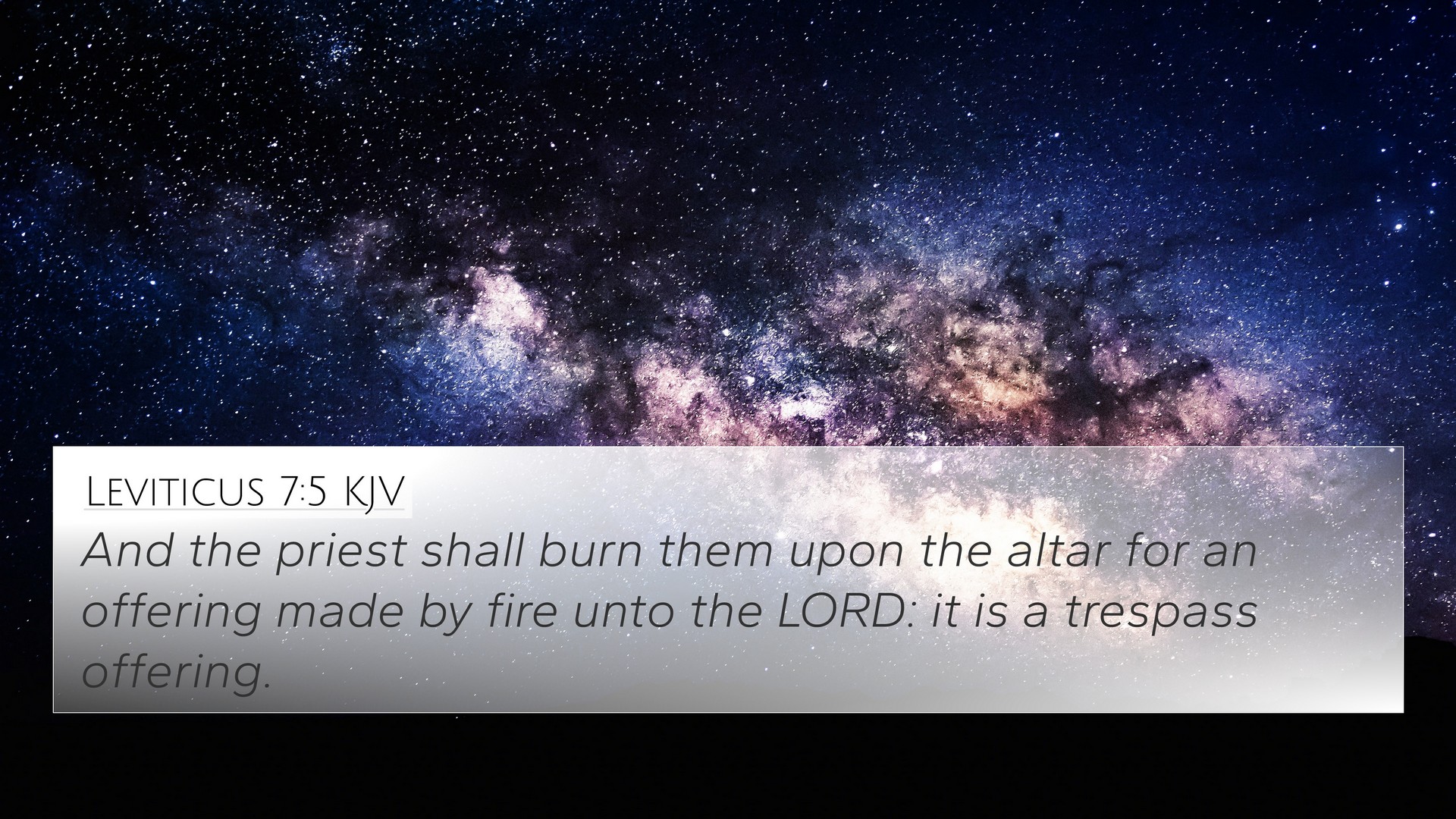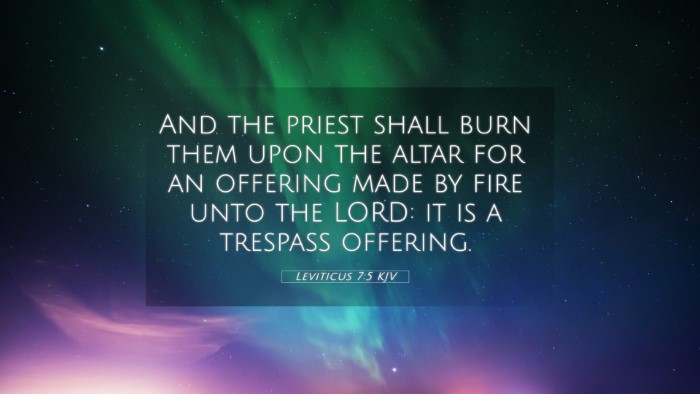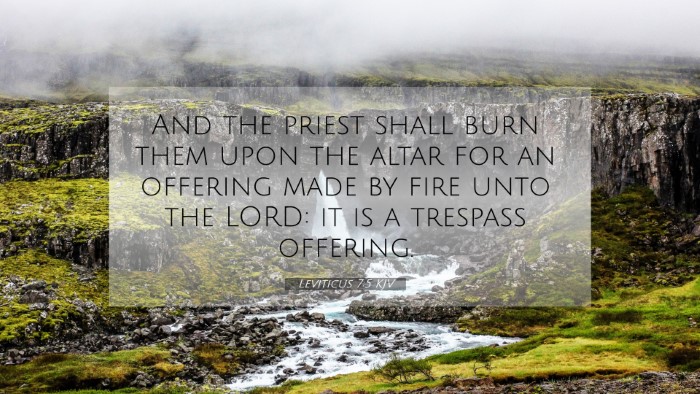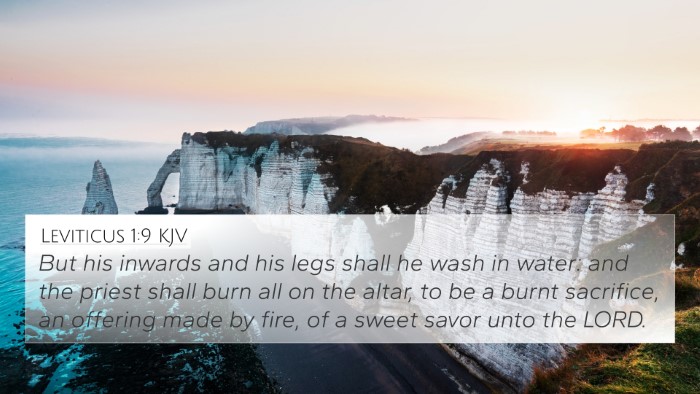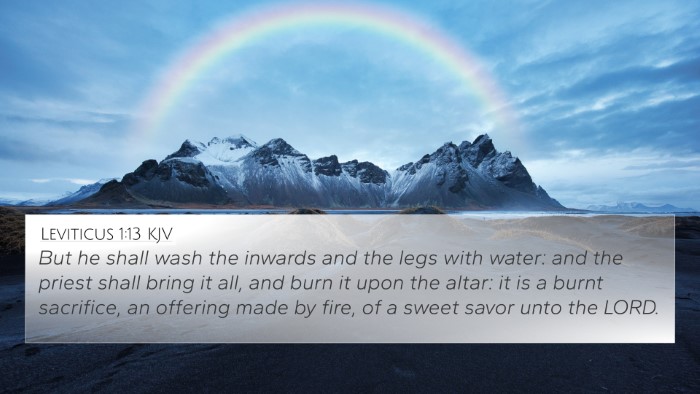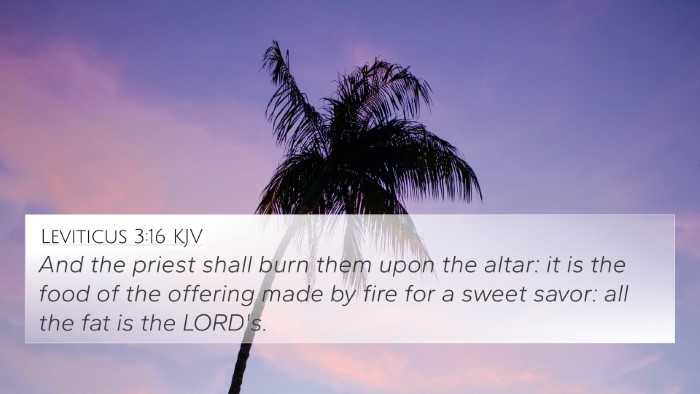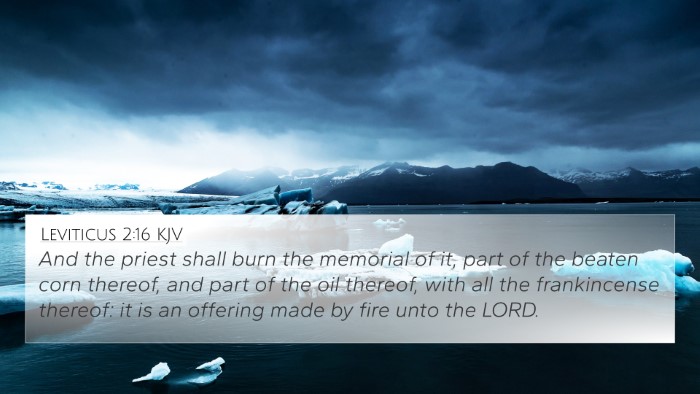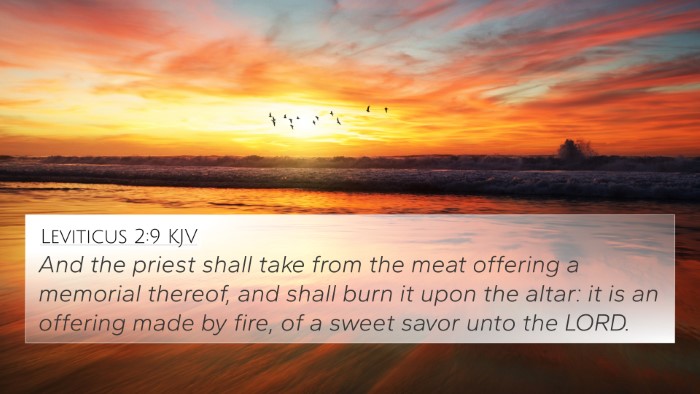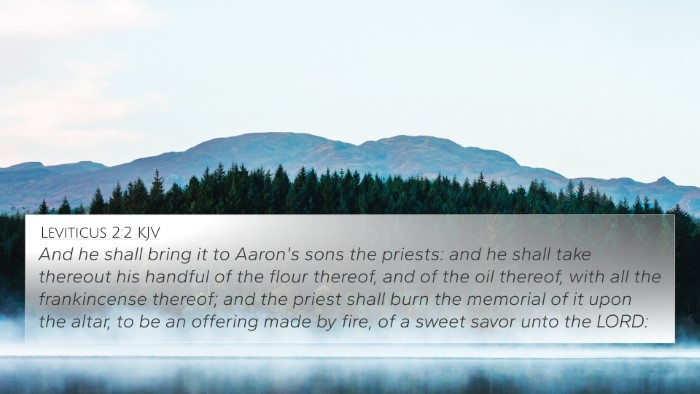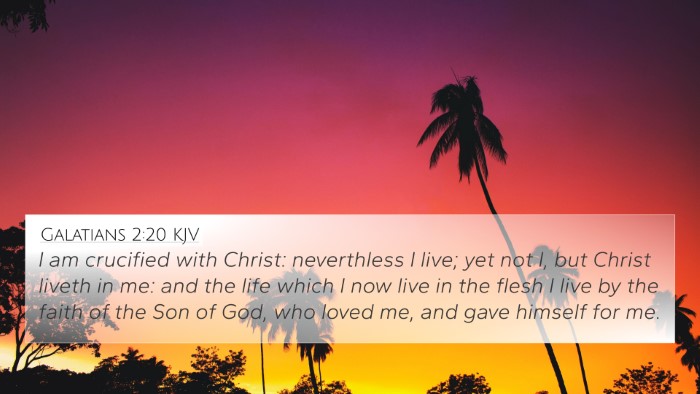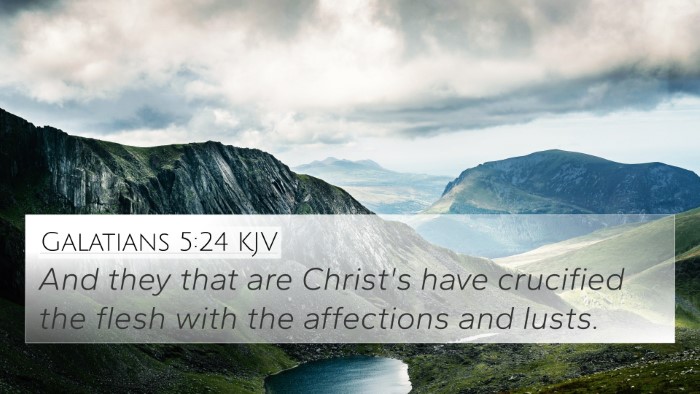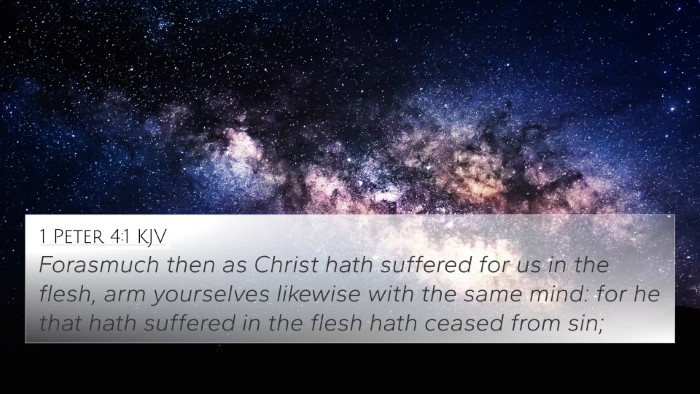Meaning and Insights on Leviticus 7:5
Leviticus 7:5 states: "And the priest shall burn them upon the altar: it is the food of the offering made by fire for a sweet savour: all the fat is the Lord's." This verse relates to the rules surrounding the peace offerings and emphasizes the importance of the sacrificial system in maintaining a relationship with God.
Understanding the Sacrificial System
According to Matthew Henry, this verse symbolizes the devotion and reverence that the people should show when bringing offerings to God. The fat of the sacrifice, which is considered the best part, is burned on the altar, indicating that the best is given to the Lord as a sign of respect and acknowledgment of His sovereignty.
Albert Barnes adds that the “sweet savour” aspect emphasizes the idea that God is pleased with the offerings. It illustrates that the sacrifices are not merely ritualistic, but they foster a relational dynamic between the offerer and God, responding to His holiness and covenant.
Adam Clarke also highlights that the context of this verse illustrates the importance of proper worship and the systematic approach to offerings in the Old Testament. Each part of the offering had its significance, and the act of burning fat symbolizes purification and dedication to God.
Connections with Other Bible Verses
This verse is not isolated; it connects with numerous other scriptures that elucidate the theme of offerings and worshipful living:
- Exodus 29:18 - "And he shall burn the whole ram upon the altar: it is a burnt offering unto the LORD." This verse parallels the dedication of offerings to God.
- Leviticus 3:16 - "And the priest shall burn them upon the altar: it is the food of the offering made by fire for a sweet savour." This verse shares similar language and ideas regarding offerings.
- Hebrews 13:15 - "By him therefore let us offer the sacrifice of praise to God continually." The principle of offering is carried into the New Testament context.
- Romans 12:1 - "Present your bodies a living sacrifice, holy, acceptable unto God, which is your reasonable service." This verse shows continuity in the theme of sacrificial offerings.
- Psalm 51:17 - "The sacrifices of God are a broken spirit: a broken and contrite heart." This emphasizes the heart behind the offerings.
- 1 Peter 2:5 - "Ye also, as lively stones, are built up a spiritual house, an holy priesthood, to offer up spiritual sacrifices." The concept evolves to spiritual offerings in the New Testament.
- Isaiah 53:10 - "Yet it pleased the Lord to bruise him; he hath put him to grief." This illustrates the ultimate sacrifice that fulfills all Old Testament offerings.
Exploring Thematic Connections
Leviticus 7:5 embodies key theological themes such as:
- Dedication: Offering the best to God signifies total commitment and allegiance.
- Holiness: The need to approach God with the right attitude in worship, knowing that He is holy.
- Relationships: The sacrificial system acts as a means of communication between God and His people.
Cross-Referencing Biblical Texts
When engaging in cross-referencing Biblical texts using tools and methods for cross-referencing, one might use a Bible concordance or a Bible cross-reference guide to understand deeper meanings and implications of verses like Leviticus 7:5. This helps in identifying connections between Old and New Testament scriptures and enhances one's understanding of overarching Biblical themes.
Conclusion
In examining Leviticus 7:5, it is clear that the act of offering to God is a multifaceted process that requires intentionality, respect, and understanding. It serves not only as an ancient ritual but as a foundational element in understanding the relationship God seeks with His people. By exploring cross-references and connections within scripture, one can appreciate the rich tapestry of Biblical teaching on sacrifice, worship, and divine relationship.
